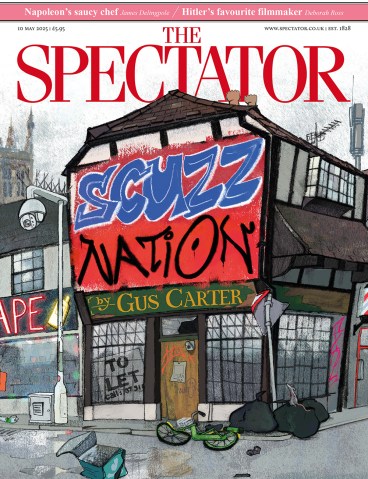
Sophocles’s Antigone is a battle over the burial of a body and the war between law and divinity. What rules – the decree of a king or conscience? This is the crux of Sofka Zinovieff’s Stealing Dad.
When Alekos, a Greek sculptor, is struck down in 2018 by a heart attack and drowns in a London canal, he leaves behind not just a spiky widow, Heather, but seven children and five colourful ex-wives. The children find it hard to imagine that his death could be so mundane: more fitting would have been ‘swimming the Hellespont or shredded by sharks’.
Alekos is a ‘Zorba-like figure’ whose selfishness has caused chaos: ‘the human collateral damage consisted of furious women, abandoned offspring and wounded spirits’. When Heather refuses to let the family attend his funeral, the children, suffering from ‘death-lag’, gather to plot a coup. What follows is part grief-memoir and part macabre escapade.
Zinovieff has written a work of fiction inspired by her own parent’s death: ‘My father left a note requesting that only his widow attend his cremation and my siblings and I were prevented from going to the funeral.’ The crematorium caper of Stealing Dad is overstuffed with a large cast of characters and threads of adultery, depression, IVF, suicide and alcoholism. A longer novel might have framed the story more believably. But the writing is fresh –‘the iced dive of vodka’, ‘perfect fingernails like peeled almonds’ – and sensuous: ‘Above them, a bat made elliptical laps in the warm, orange-tinted darkness.’
The author weaves in some valuable ideas: how selfish parenting can pass on ‘destructive impulses’ and the theory of ‘psychoneuroimmunology’– that ‘bereavement can cause heart disease or diabetes’. The siblings muse whether Alekos, who flew too close to the sun, was in fact not Icarus but Dedalus, the architect of others’ misfortunes. Or perhaps he was both. We are all paradoxes, as Lukas, a kindly therapist, observes. But ‘given that his own first go at matrimony was already showing signs of stress, the advice Lukas threw out so easily to his patients now sounded preposterous’.
Zinovieff reflects on the ‘death bardo’ and ‘psychopomps’ from Greek mythology – entities who guided souls to the afterlife. Beyond the liminal place of this book between realism and absurdism, fact and fiction, if this yarn tells us anything it’s not the dead or the River Styx we should worry about, but the living.








Comments